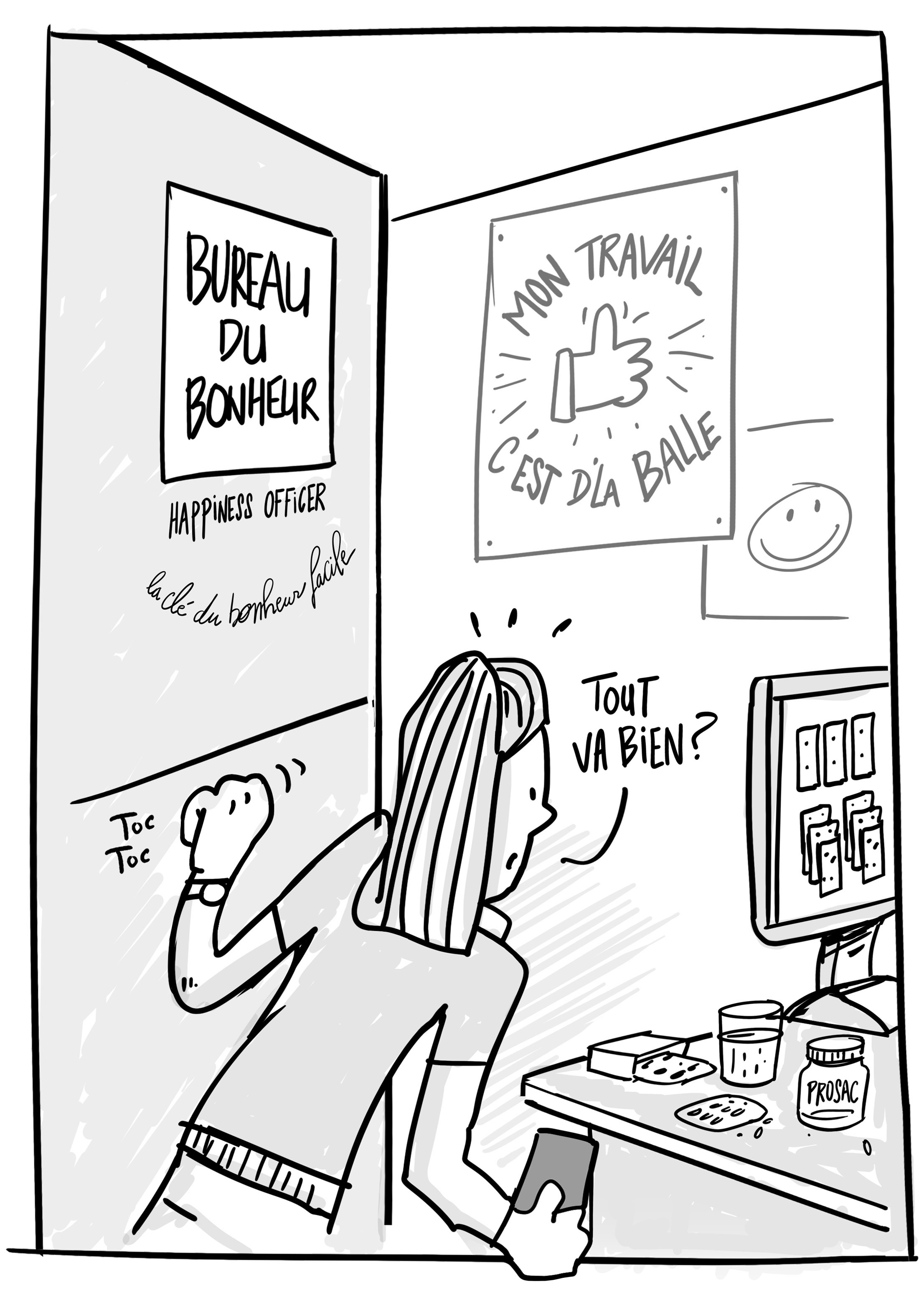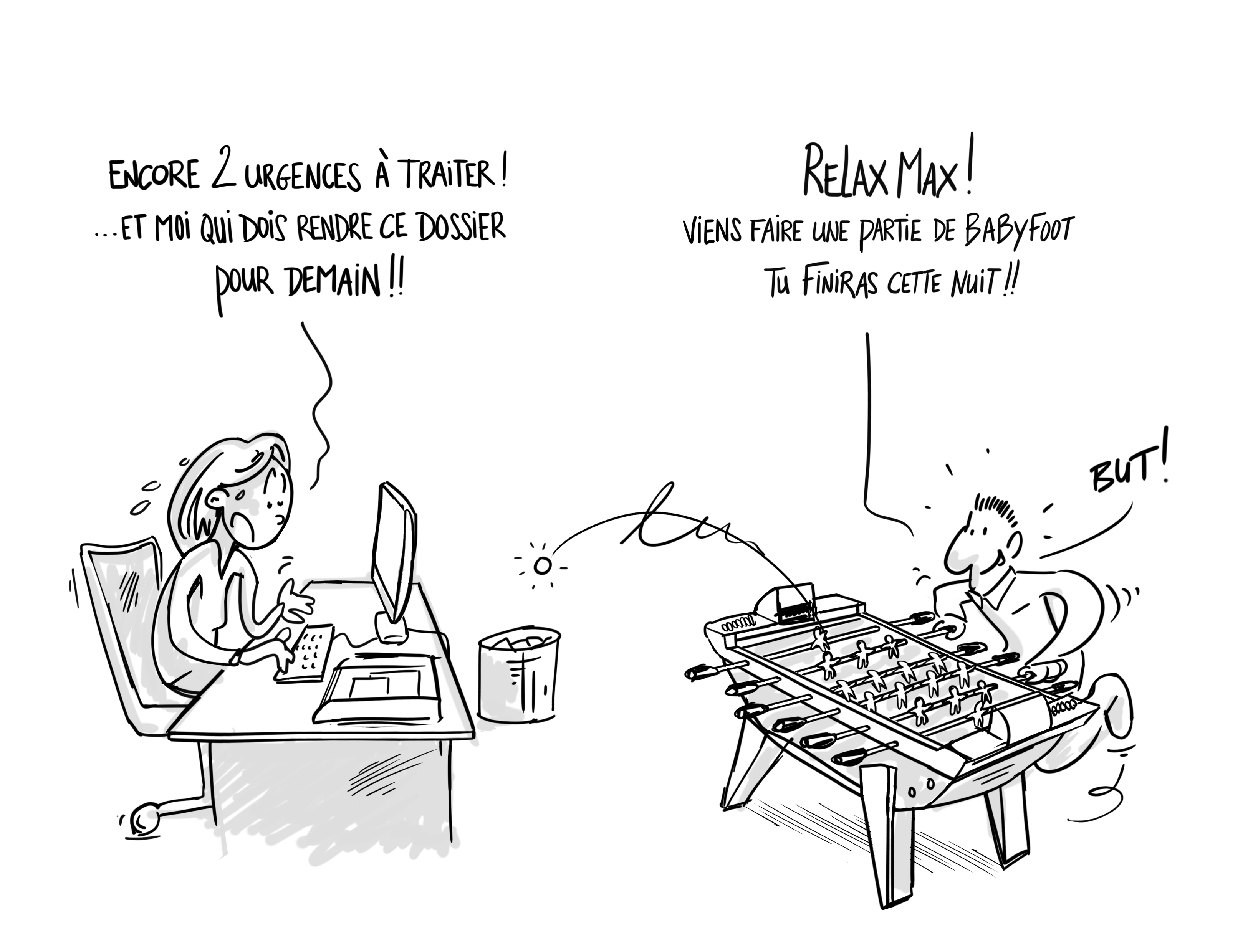Eyes on Social Engagement of the Employer Brand

What is true in the act of buying is also true regarding job-involvement. Consumers and employees are definitly fighting the same battle. Talents can no longer be caught only with an attractive salary, companies must commit! A recent Havas Meaningful Brands study highlights that for two-thirds of respondents, it is crucial that employers have a "greater purpose" and that jobs have a significant societal impact. Particularly, a company's social contributions and their internal and external aspects are under constant scrutiny.
Companies, Watch Out for Happy-Washing!
Installing a football table, hanging sticky notes on walls or appointing a Chief Happiness Officer are not enough to create satisfactory working conditions for the collective to surpass itself. Without a deep commitment, it remains happy-washing, a way of "buying a conscience of humanity" without changing its deep practices. In other words, offering employees temporary pleasures instead of initiating a (r)evolution of its managerial culture means hiding HR functions behind short-term positive emotions.
Beware of the current fashion which defends a very narcissistic positioning of happiness that would depend almost exclusively on the individual and its perceptions, and not at all on the fundamentals of his collective environment. Thinking that being happy is a personal choice poses the definite risk of an injunction of happiness on everyone. Indeed, if it is up to you to be happy and you are not, unhappiness becomes a personal failure in both the private and professional spheres. To prove one's daily joy to the world, nothing is better than posts on social networks, a showcase dripping with "happy" sauce, yet far removed from the intrinsic motivational elements that are the pillars of professional fulfilment.
Worse, not being happy at work when someone is hired fulltime to look after this (it is the guideline of Chief Happiness Officer, feel-good manager, etc.) thus becomes a problem of positioning and personal inability to experience happiness. Farewell revendications! If employees are not happy, it is up to them to change their view of their tasks, their manager or their company. It is no longer useful to aspire to a pay rise, disconnected breaks or a workload adapted to the time and skill resources of a team.
Let's face it, professional fulfilment is only possible by offering an exciting job that can be practiced under good conditions. To believe that adding something external to work would allow employees to hide the inherent needs of a job's stakes is to invert the cause-consequence relationship in a very inconsistent way, but basically so convenient. For example, to require an employee to spend time on activities "for his or her happiness", to make them "swallow" with a smile the inevitable overtime due to their excessive workload is more a cynical paradox than the embodiment of a responsible employer.
Instilling this philosophy of happiness into corporate culture is the trap of perhaps undermining any desire for profound change, progress or even claim, but also involvement which is currently the ultimate quest of any employer.

Illustration: Aurélien Mayer
The employer brand: more than words, more than symbols, go deeds
Words are not enough, facts and a global vision are now required. And paradoxical positions come at a high price. In 2017, Audi seized the opportunity during the Super Bowl to expose itself as a defender of gender equality on issues of salary and professional development. Since no woman occupied a seat on its executive committee at the time, it faced an outcry. Especially on YouTube, where the advertising video quickly receives 35,000 thumbs down and many comments denouncing the inconsistencies between the worthy cause and the disappointing reality.
To attract today's talent, an organisation must care for its employer brand by aiming for two fundamental objectives: to pursue an assumed purpose and to propose a quality of working conditions. Companies must rethink the very meaning of their action towards a vision, around challenges and values, and no longer based on individual powers. Selling benevolence as a management standard without engaging a real networking policy is no longer accepted. Social relations are becoming increasingly important, as are the logics of contribution, exchange and the search for meaning at work. These concerns are illustrated in particular with less hierarchical organisation charts, less fixed networks and with the development of corporate social responsibility policies. Increasingly, there is talk of healthy or ethical leadership, replacing the direction of tasks with the creation of optimal conditions for their achievement. Organisational models must, therefore, be thoroughly rethought and embodied at all levels to respond both to changes in the world of work and the aspirations of new generations. We are therefore a long way from the happy veneer that covers some corporate communications, which many are now very tempted to scratch.
When the Sum of Opinions Adds up to the Truth
In fact, the employer brand is entirely beyond the controlled communication of an organisation. The era of top-down communication is now giving way to that of lateral information. The younger generations are spreading their community functioning, and nothing escapes popular evaluation, consumer or peer verdicts anymore. Before sending out a CV or subscribing to a service, one finds out about employees' working conditions, values and product quality. Workplace well-being labels, employer reviews and other "happy indexes" flourish everywhere and become the green or red lights of potential candidates or clients. The only apparent guarantee of these sites: "real" employees share their opinions. For example, the well-known job board site Glassdoor allows current and former employees to rate companies and post comments. Their name reveals this quest for hyper-transparency. While many positive criticisms of the company may serve as a bundle of evidence and contribute to an employer's good reputation, it is also important to remember that peer-to-peer communication leaves little room for objective facts, which now sometimes have less influence in shaping opinion than emotional appeals and personal opinions. A company's reputation then moves beyond the strict field of rationality.
In the digital world, the devastating power of rumour is multiplied by the viral power of the web: fake news, false or deliberately biased information, can damage the reputation of organisations with a single click. In general, fake news spread six times faster than verified information and appeal to readers' emotions rather than to their reason or rationality. The multiplication of fake news and its standardisation is the gateway to the posttruth era where we collectively accept the existence of "alternative" truths for which reality and facts no longer count as references, or even have become obsolete. The particularity of post-truth, according to the philosopher Myriam Revault d'Allonnes is the emergence of "factual truths" whose definition lies between opinions and rational truths.
Let's Walk...
Without being able to control communication, organisations can work on their social and environmental coherence and exemplarity. The winning combination for the employer brand is commitment and humility. "Sex doesn't sell anymore, activism do". Posted three years ago by Alex Holder of The Guardian, this sentence summarises the marketing issue that led to valuewashing (green, social, happy, etc.). Be careful not to give in to temptation and advocate half values when hyper-transparency and fact-checking become the norm for all official communications. Dissonance is tangible when the strategy of societal engagement is missing. Reflection on the company's reason for being and commitment must prevail, and sincere communication must naturally follow. Because the message is second, coming from the company's policy is only the result and expression of its strategy.
More than "Walk the Talk" it is all about moving forward. Let's walk, not talk so much actually...

To be read also in the dossier "From Washing to Cold Shower" :

